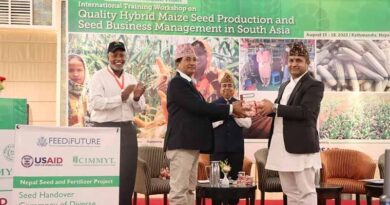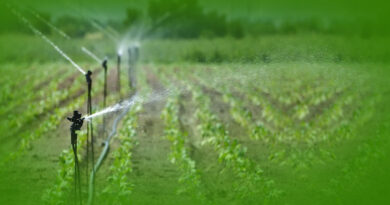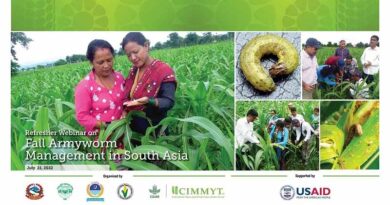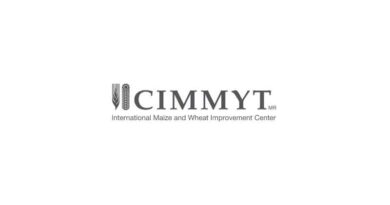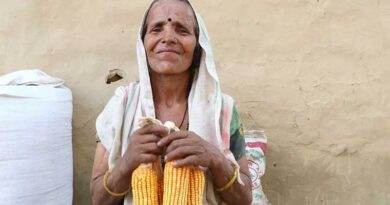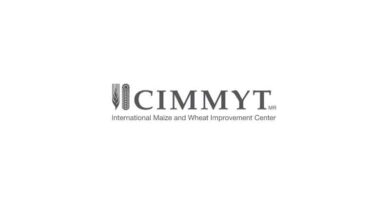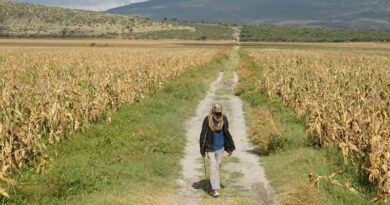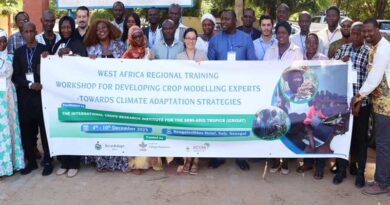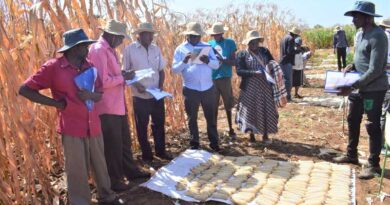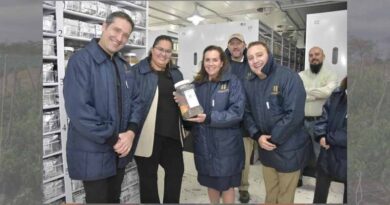Strengthening Maize Value Chains in Nepal
The International Maize Conference highlights CIMMYT’s commitment to driving innovations, promoting knowledge sharing, and strengthening partnerships to advance Nepal’s national maize sector.
21 May 2024, Nepal: From April 3-4, 2024, CIMMYT hosted the International Conference on Strengthening Maize Value Chains in Nepal, organized in collaboration with the Ministry of Agriculture and Livestock Development, the Department of Agriculture (DOA), the National Agriculture Research Council (NARC), and the Agri Enterprise Center (AEC) of the Federation of Nepali Chamber of Commerce and Industry (FNCCI), with support from the United States Agency for International Development (USAID).
“Maize holds the potential to yield manifold benefits for farmers, the private sector, and the Government of Nepal, through the development of an efficient market system,” said Judith Almodovar, acting director of the Economic Growth Office at USAID Nepal. With this in mind, the two-day conference held in Kathmandu brought together government officials, policymakers, industry leaders, and experts from Nepal and the wider region to explore avenues for advancing the country’s maize sub-sector. It served as a platform for participants from India, Bangladesh, and Nepal, representing various functions of the maize value chain to share and exchange innovative commercial maize production, post-harvest, supply chain, and marketing models and policies aimed at improving efficiency, ensuring sustainability, and fostering competitiveness.
Addressing the opening session, Honorable Minister of Agriculture, Jwala Kumari Sah, highlighted the Government of Nepal’s priority to increase maize production and marketing, emphasizing the need to provide maize for food, feed, and fodder to boost incomes and improve livelihoods. While highlighting objectives and expectations from the conference, Country Representative for CIMMYT in Nepal, Dyutiman Choudhary, shared information about CIMMYT’s mandate and global expertise in maize science, as well as interventions to develop a maize seed-to-feed model in Nepal. The organization’s model fosters public-private farmer partnerships for commercial maize production as a key approach to develop an inclusive and sustainable maize sub-sector in the country. “As a result, maize yields have doubled in Nepal and farmer gate prices have increased by 50% in the last two years,” Choudhary explained.
Recommendations for sustainable improvement
The conference involved five different technical sessions over the course of two days, each focused on various themes related to production, marketing, international best practices, and policies. Experts from Bangladesh, India, and Nepal were involved in insightful discussions and shared valuable knowledge and experience for advancing the commercialization of the maize sub-sector in Nepal.
Participants made recommendations for the sustainable improvement of national maize production and commercialization to meet the growing demand for food, feed, and fodder while reducing reliance on imports. These include developing high-yielding, short-duration, stress-tolerant maize varieties, and identifying models for commercial maize production, post-harvest, storage, market linkages, and supportive policies for improved investment and coordination among public sectors, market actors, and service providers to meet national maize demand.
At the closing session, Govinda Prasad Sharma, secretary at the Ministry of Agriculture and Livestock Development (MOALD), notified attendees that MOALD is in the process of strengthening a national strategy for maize commercialization and that the learning from the conference will provide valuable inputs. He added that the participation of experts from neighboring countries has provided deep insights for policy development.
Also Read: Savannah Seeds and ADAMA India Launch FullPage® Rice Cropping Solution for Paddy Farmers
(For Latest Agriculture News & Updates, follow Krishak Jagat on Google News)


